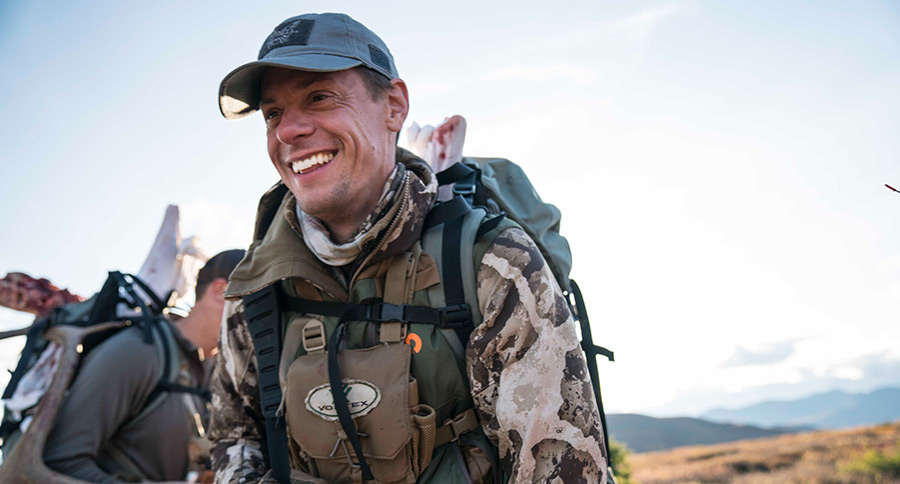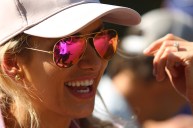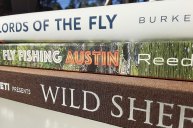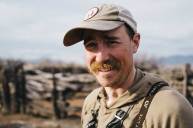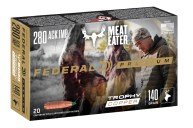"I'm a diehard Bigfoot non-believer."
Thank goodness, because so am I. When someone reaches a level of "unofficial professor" of all things outdoors, it's reassuring when they confirm a shared non-belief.
Steven Rinella hasn't changed his principles, but with The Meateater, he's creating an unprecedented network of outdoor information and engagement. And the great thing is, it doesn't matter who you are, where you live, or what you do. This stuff is for you.
As luck would have it, I was able to learn a lot (including that Bigfoot non-belief confirmation) over the phone when Steven Rinella and I spoke about the growing Meateater network. Bigfoot was the subject of a popular recent Meateater podcast episode, and despite his vehement disagreement with any existence, hearing his interview with someone who's immersed in the field made for a great listen.
It's also a great example of what makes Meateater so universally popular: tackling questions of the outdoors with passionate respect.
His questions about Bigfoot contained a healthy dose of skepticism, but he wasn't rude about it. Rinella's natural delivery is often like listening to an old buddy you'd known for a while.
He didn't believe in Bigfoot and repeatedly said so, but for some reason the fellow non-believer in me still needed to double check.
The podcast is just one of the many ways Rinella is extending the Meateater influence, which is arguably reaching a wider audience than just about any other outdoor media outlet at the moment.
The Meateater podcast, the show (which recently debuted the seventh season on Netflix), the new cookbook, and the website and social media presence are giving Rinella and his team more outlets for sharing and engaging with people from all walks. Poised for more, he shared his perspective on the culinary and conservation aspects of hunting and fishing, and why they're at the heart of what Meateater stands for.
The appeal of the Meateater mission is clear to many of us, but to learn more about what Rinella puts into it, what he's getting out, and how it all fits together, here are his thoughts on writing an all-encompassing cookbook, preparing for a podcast recording, and even that catchy Meateater theme song that you can't get out of your head.
On the new Fish and Game Cookbook, and how it's different from previous Meateater books:
This is our first dedicated, full comprehensive wild game cookbook that deals with everything from shellfish, to freshwater fish, to upland birds, to game. We've done in the past a guidebook series, a Volume I Big Game and Volume II Small Game, and those were very heavily focused on equipment, tactics, and how to information. They kind of walk you through the entire process of how to get into hunting and how to go about it.
This new book leaves that behind and really picks up with what to do once you're successful. And this is also our first push into putting out really good information around preparing fish.
On who the books are for:
These books are geared towards anyone, from the specialist who likes to deer hunt, and they just want to know how to use everything from the nose to the tail on a deer, and want to have a really comprehensive approach to cooking deer. [They're also geared] to a generalist hunter and fisherman, who's out there doing it all and wanting to know how to get the maximum value and best flavor out of everything they do.
It's a one-stop wild game book, and it doesn't matter where you live in the country. Everyone in the country is within an easy drive of some of the things we discuss in this book. And this will walk them through the whole process of how to clean it, and how to prepare it.
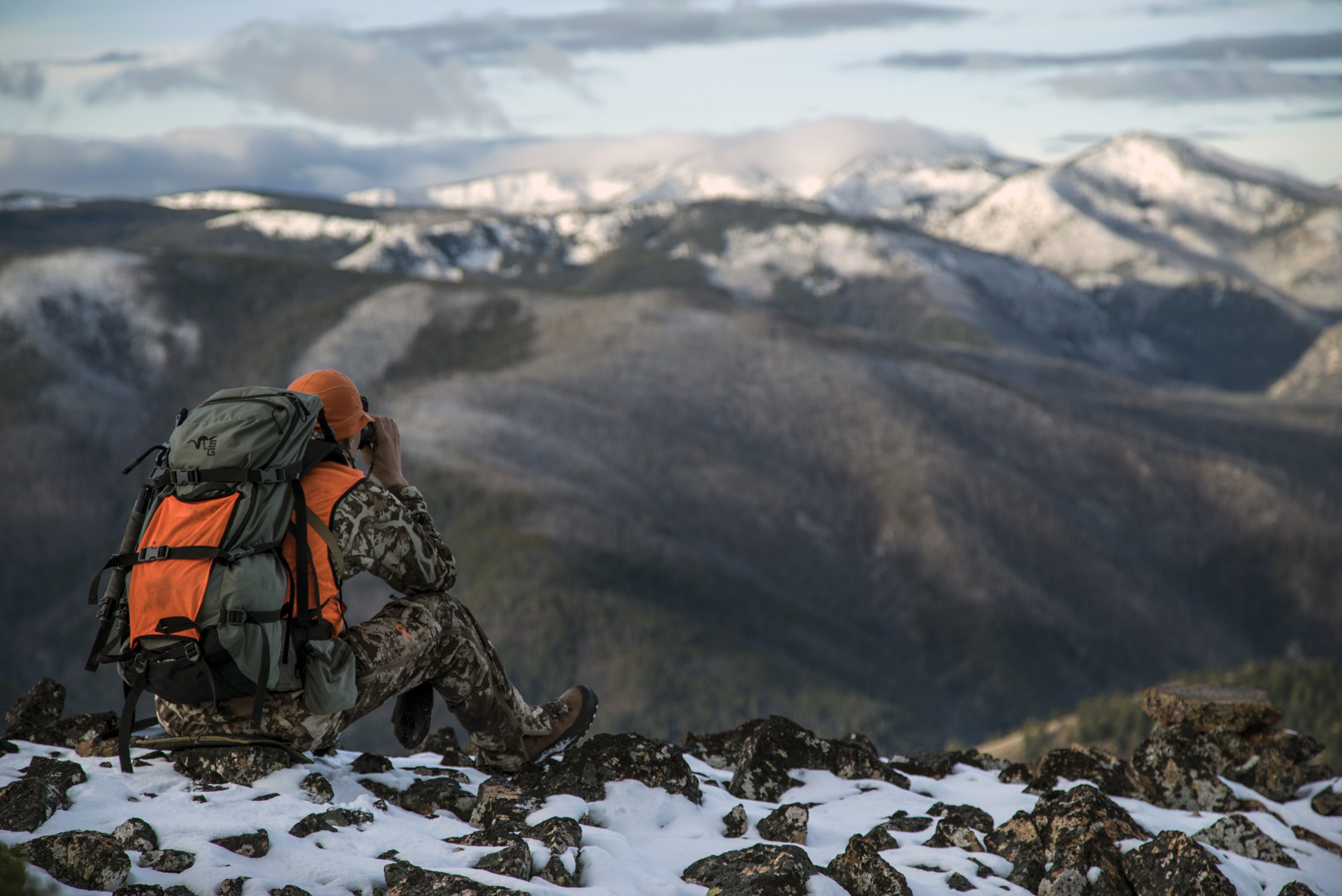
On how accessible outdoor pursuits, and therefore wild game meat, really are:
Oh yeah man, I spent a few years living in New York City. And we were hunting hard. We would hunt and fish all over the place around there.
There's really no obstacle but the obstacles people perceive. We have such rich resources here, and they're, compared to anywhere else in the world, very well managed. Anyone in the world who wants to forge a deep, hands-on connection to food, even if it's just a meal or two a year, has that accessible to them. As a company at Meateater, we like to be a place where you come to get that kind of information, and have it delivered in a reliable, fun, and engaging way.
On his efforts to make stuff equally as informative and entertaining for diehards as it is for generalists:
Yeah, I really try to. I try to think nationally and beyond that a little bit as well, and make sure I'm speaking to as wide an audience as possible. Another thing that I try to do, and the team I work with tries to do, is sort of have two conversations. All the time we're engaged in a dual conversation, where I'm talking to people who might have the kind of experiences similar to me, meaning lifelong, very dedicated hunters and anglers who view the world through that lens, and are really comfortable around this, and have a broad range of experiences in this world. I'm talking to those people and addressing the things they have on their minds.
But then I'm also talking to people who are looking from the outside in. Maybe they're kind of kicking the tires on these subjects. Maybe they're even curious, but a little uneasy about it. Maybe something's making them a little uncomfortable, and they want to understand the broader impacts of these activities and this lifestyle. I try to provide them with the information they need to feel comfortable, and feel like they're wading into something that they understand well, and not walking into a blind alley when they get into these pursuits.
So I'm talking to the diehards, and I'm also trying to talk to the curious. I think that we've found a way to be pretty successful having both of those conversations, without making anybody bored and without making anyone uncomfortable.
On his podcast preparation process, and how episodes are influenced and constructed:
I definitely approach the episodes with notes, and I try to come prepared, but there are a lot of off-the-cuff elements to it. If I'm doing an interview with someone, like in the Bigfoot episode, I walk in ready to roll, and I put a lot of thought into it.
And I also pay a lot of attention to feedback that we hear from listeners. I like to really know what's on people's minds, and know what resonates with people. We float a lot of subjects on the show and bring up a lot of things. When I'm doing that, I'm always waiting to see what parts of that bounce back to me, and what parts of that catch people's imagination. That helps steer me in a direction where I can ask the questions that are on listeners' minds, and I can address the things they want to know about. But it's also my job, I think, to present them with ideas and information that they would never have thought about or known they were interested in.
On the theme song to the Meateater television show, which is admittedly tough to get out of your head:
You know, I'm really embarrassed to say, but I gotta dig in more and find out the source of the music. I know the guy who made it, but how he assembled that piece of music, I can't tell you. Beyond the music licensing service that we used, I can't tell you specifics.
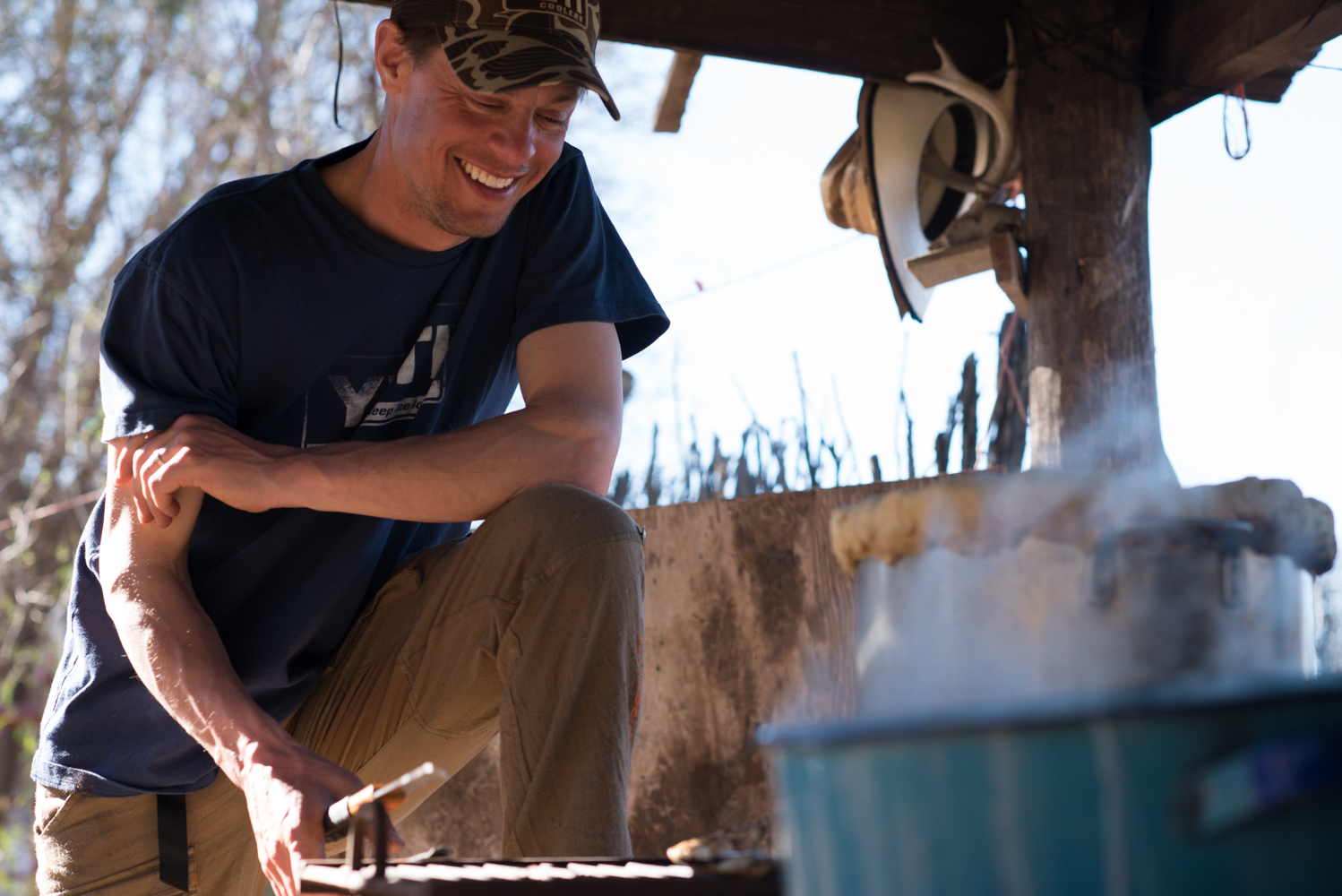
On the benefits of having a show on Netflix:
For our season seven, our most recent episodes, they debuted on Netflix as a Netflix original. That was a really nice thing to see, and I love the show being there. It's available to a really wide audience. There are so many people who are unfamiliar with some of the subjects and topics we talk about, and might be approaching hunting from no background. It can be difficult for people to step in, and difficult to find and engage with media that deals with those subjects.
We get a lot of emails now from vegans who say "Man, I haven't eaten meat in 20 years, but it's so interesting to see someone who's talking about such an intimate relationship with food, and seems to be really well-grounded in an ethical understanding and compassion for the resource." Admittedly, it's definitely a minority; our majority audience isn't vegans or vegetarians, but to be able to engage in that kind of conversation with people is really fun and nice, you know? I tend to hang out with a lot of people who grew up a lot like me, so it's really fun to be able to open up and have an audience of people who aren't coming from the background I'm coming from, but the show's subject matter resonates with them, or demonstrates something.
On the other unexpected responses the show has started to get:
We hear from a lot of people who sit down and they only watch because they can't wait to hate it. And then they're like "I watched it because I wanted to hate it so bad, but there's something so mesmerizing about the beauty of the landscape, and the stories that are being talked about, that now I gotta unfortunately write in and tell you I love the show." That kind of thing can only come from a place like Netflix.
On if there are things he wished he'd known when starting the Meateater TV show:
I'll say no. There are things in a career sense. I started writing for Outside Magazine in 2000, so 18 years ago. There are things I wish I'd known then that I know now. But in terms of making the show, no, because we've done over 100 episodes and the show's remained recognizable. You could watch the first episode that we put out and the last episode that we put out, and there's a consistent sensibility and a consistent sense of narrative between then and now.
It's evolved over time because I've evolved over time, and my understanding of things or my interests have changed. I've deemphasized parts of my life to emphasize other parts. Throughout that time I became a parent; I had an infant child when I began making the show. I now have three kids. I have an 8-year-old son, and that's really affected some of my thinking about a sense of urgency around certain conservation issues. But I would never want to go back and undo the early parts, because I like to view the whole thing as this evolving progression, and it's helped me define what it's become.
On the credit he shares for building Meateater:
What the show looks like and feels like isn't just me. There were other people: a director and editor named Nick Brigden, a director of photography named Mo Fallon, and they've gone on to do great things. These guys worked on Anthony Bourdain's "No Reservations" and "Parts Unknown." They were involved in the early phase of making the show what it is and what it looks like, so it's not something all out of my head. When I look at the things that this small group of people did to make those early shows, even though the show has changed, I still love what it was because that's helped it become what it is.
On Meateater's (and his own personal) connection with onX Hunt:
Working with onX, it's kind of one of the best arrangements because it was a product I used naturally. Long ago I was a very early adopter, back when onX had maps that they put on a chip that you loaded onto a GPS. I was buying onX back then, and I've always used it and watched the company grow. It's really changed a lot, because there's a big conversation in this country around access and around public lands. It really affected how people perceive and use public lands, and opened up a lot of opportunities for people.
I loved it for that reason, and so later to wind up developing an audience that I felt should know about it, and to have the chance to work with onX, there's nothing more organic and natural. There's no forced fit there. Even if I didn't work with them in a formal way, I'd still run around recommending it to everyone all the time.
On what's stuck with him the most throughout his journey as an outdoorsman:
Some of the most impactful experiences I've had were being down in South America, doing river trips in the jungle where you're out with indigenous groups, people who have an ancestral connection to the landscape upon which we're traveling. That's something I would love to do a lot more of, and I look forward to introducing my kids to that, as hard as it is to put together.

On long range hunting, and his take on the concept:
It's impossible to tell someone a yardage that they should limit themselves to. You can't talk about it in yardage, you have to talk about it in capability. There are people I know, young hunters, and beginning hunters, who I don't think have any business shooting past 100 yards, because I don't think they have the level of expertise. And there are people I know who, at 500 yards, are much more precise than your average hunter is at 100 yards.
If I'm hunting and I touch the trigger, I'm not curious about what will happen. I know very well what will happen, you know? Of course there are things that you can't anticipate, and mistakes can be made, but I'm not doing something to see if I can hit it. I'm doing something because I have 90% or higher assurance that when I touch the trigger I know what will happen. So it's for each person to figure out.
With that said, there's a thing that technology can't surpass, that we can't account for. What really has enabled longer-range shots to be fired is the rangefinder [...] That opened up sort of a "revolution in the woods" thing [...] But the things that technology isn't going to overcome is that time elapses between the time when you shoot a bullet, but even more importantly when you're talking about shooting a bow. There's a lot of things that can happen during that time. Something can take a step. There are built in limits, and I'm reluctant to talk about specific things. But when I hear about people taking shots around 900, 800 yards, you're vulnerable to some serious mistakes.
On what he thinks is a main highlight of the new cookbook:
I spent years and years trying to develop a really failsafe way to make smoked venison ham. I think that's one of our best preparations in our new cookbook, only because it really solves some of the problems that I've recognized over a long time. Like how to go about properly brining and smoking a deer ham, and have it be something that is gonna be very memorable to people. And I've kind of dialed in a thing that I feel is a great creation and a real legitimate contribution to wild game cooking.
And I have to point out, man, I'm not a chef. I'm not a formally trained chef, but I'm a person who's willing to experiment with things over a long time to find out ways to use things that are novel, and wind up being pleasantly surprising to those who try to go and do it themselves.
On what he had planned for his holiday meals:
It's not even traditional food. We kind of like to cook what's going on in the moment. Last year for Christmas we lived in Seattle and the squid were running, so our Christmas dinner involved a lot of squid, which is not necessary regarded as part of a traditional Christmas dinner. But we definitely eat a great variety of things, and try to pull from the land, and the air, and the sea and have it be a real celebration of the landscapes that have kind of touched us over the year.
On what's coming down the line for Meateater:
We have a ton of things in the works. When I started the TV show a long time ago, the very original conversations that I was having as we started that were that it was important to me to expand it beyond myself. I knew so many great content contributors, and people who were doing really good work in the space, and were talking about things that I felt were important. People that were different than me but driven by the same motivations, the same love for the natural world, and the same beliefs that having hands-on experiences in nature changes people's lives. It's always been my intention to grow Meateater out and make it bigger than just me.
Now after all these years, we're in the position to really expand. Meateater has been able to take on dedicated leadership, and we're putting together a team of people who can focus on it all the time, and we're expanding into every kind of media there is. We just launched the hardcover cookbook, and we'll be doing more books. We're expanding the podcast network. We're putting out 20-plus pieces of online content every week on our website, and we're making really funny, cool t-shirts.
We're focusing very heavily in hunting, fishing, conservation, and the culinary spaces.
So if anyone pays attention, heads to TheMeateater.com, or watches the Meateater universe, they're just going to see more and better material coming from us at all times.
NEXT: WE GOT JIM SHOCKEY TO OPEN UP ABOUT HIS AWARD-WINNING HUNTING CAREER
WATCH
